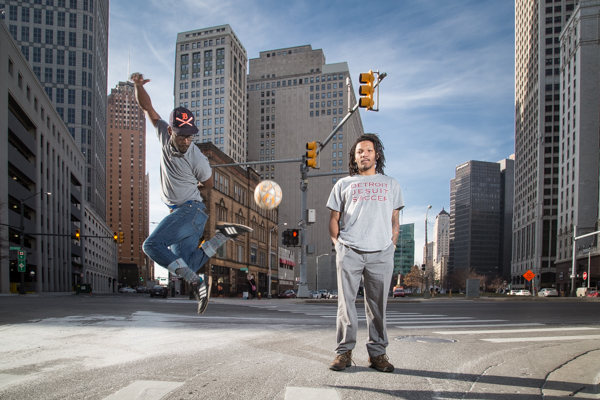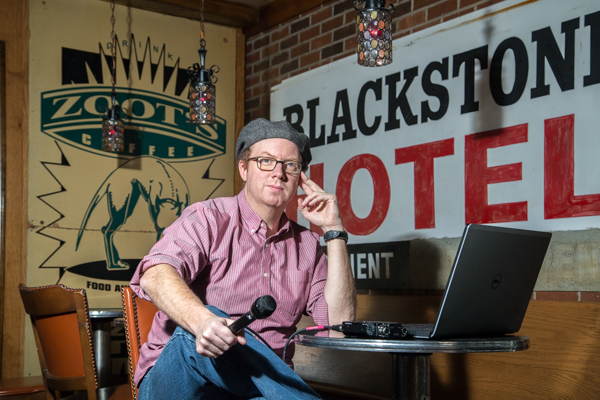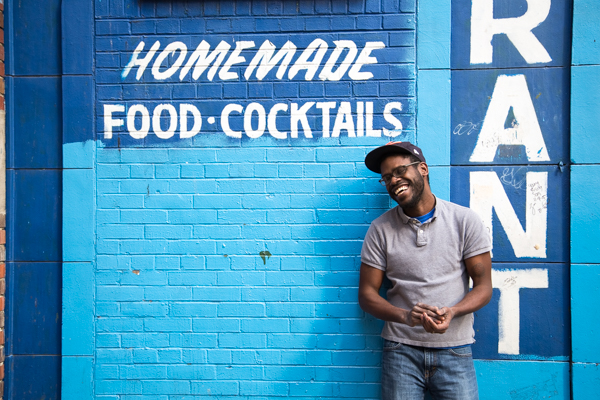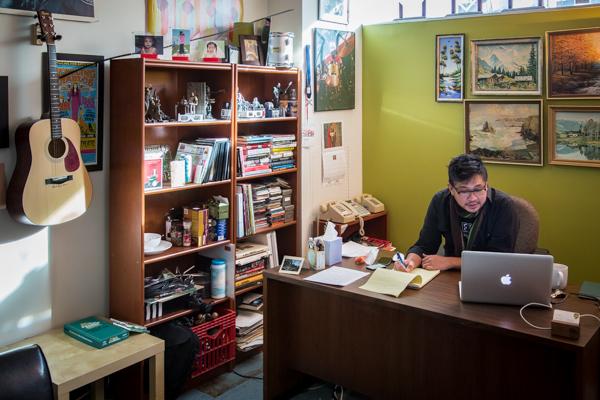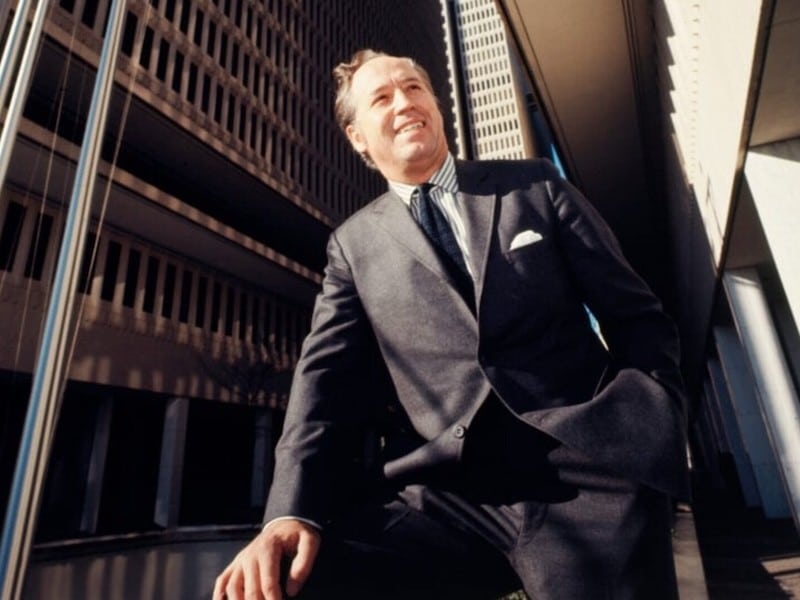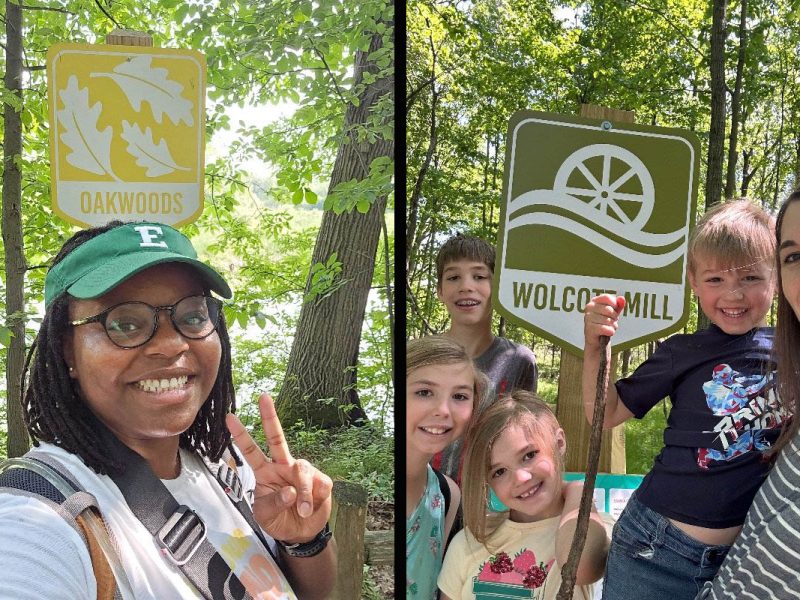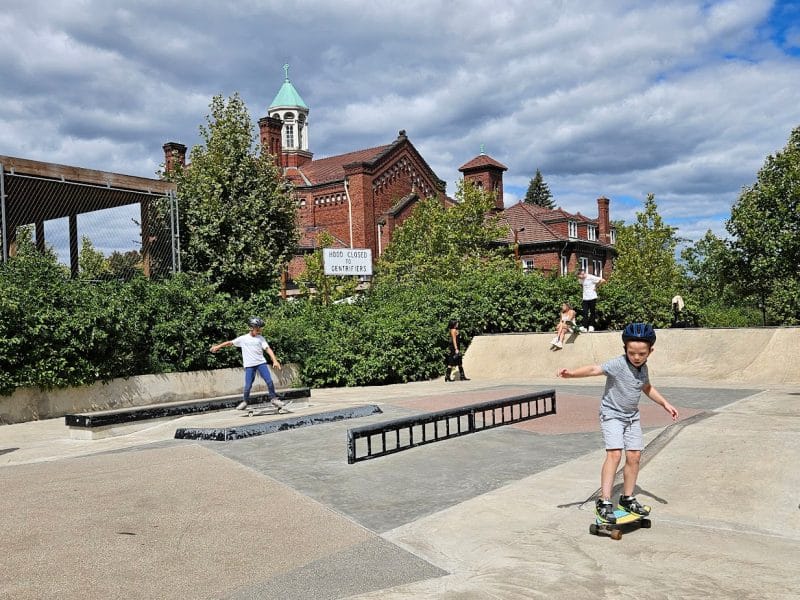Detroit podcasts you need to be listening to
There's something for everyone in Detroit's exploding podcast scene. Here are a few of our favorite shows to get you started listening local.
With the rapid rise in popularity of shows like Serial, Radiolab, and WTF with Marc Maron, it seems as if we are in the midst of a golden age for podcasting. Like blogging and making YouTube videos, podcasting has become a democratic medium of personal expression — all you need is an idea and a recording device (sometimes not even an idea) to create your own show. And according to the Pew Research Center, the number of podcast listeners is growing as rapidly as the number of podcasts being made.
Here in Detroit, the number of locally produced podcasts is also on the rise, not surprising in a city brimming with stories and culture. Model D is here to help you separate the chaff from the wheat and highlight some of our favorite local shows. This list, presented in alphabetical order, is by no means exhaustive, so excuse us if we missed your favorite.
After Improv
Tony Augusty, John Yarbrough, Jim Harper, and Heather Anonymous (who keeps her last name secret because she’s in grad school for social work) used to go to the bar after their improv class and talk late into the night about the new performance art with which they had become obsessed. It made sense when one of them eventually proposed recording their conversations. They named the podcast, appropriately, After Improv, and still meet to record on Tuesdays, the same day their original class met. Each new season of the podcast marks a new class semester.
The After Improv crew nerds out on improv and local improv-related events, like the Detroit Improv Festival and Planet Ant Theater’s annual Colony Fest. In the last couple seasons they’ve centered shows around guest interviews of both veteran improvisors like Quintin Hicks, a teacher and performer who was on the resident cast of Second City Detroit, and fellow students.
After Improv doesn’t just cater to a narrow audience of improv enthusiasts — the banter is universally funny. Augusty, the primary interviewer, is a former journalist with a knack for asking questions that lead to compelling conversations. “Our philosophy with interviews is that there’s something interesting about everybody,” he says.
“That’s something we learned from improv,” adds Harper. “Everyone makes unique decisions on stage.”
In a recent episode, for example, the crew spoke to Jacob Russell about such wide-ranging topics as sneaker culture, hip-hop, and race in improv. There’s also Heather, often the quietest member during interviews, but whose antics lead to the show’s most memorable and outrageous moments. Once, she drunkenly admitted to having sex dreams about the rest of the crew…except Augusty. “That’s basically the story of my life,” he replied.
The Beginning of the End
Everything eventually ends — relationships, communities, movements, lives. Everyone has been touched by the end of something and that’s what makes WDET’s The Beginning of the End such an accessible listen.
“It’s a theme that’s universal,” says producer Alex Trajano. “You learn a lot about human behavior in those situations. How does this person respond to change? And also how would I react in that situation?”
Even though the end inevitably comes, and its loss is deeply felt by the episode’s protagonist, Trajano tries to scout for stories that have a coda — the beginning of something new. For example, in an episode about a soldier who got himself discharged from the military after being accused of homosexuality, years later the protagonist gets a letter from his father whom he hadn’t heard from in more than a decade — in which he comes out as gay.
“I like stories that have a transformative effect, so they arrive at the other side with a new perspective,” says Trajano.
Like so many, Trajano was moved by the popular podcast “Serial,” which covered an investigation into the events of decade-old murder, and felt WDET should produce their own original, story-based content. The positive feedback from The Beginning of the End has encouraged Trajano to eventually assemble a catalogue of shows that will hopefully one day rival such well known, station-produced podcasts as WBEZ’s This American Life or WNYC’s Radiolab.
Detours
In each episode of Detours, former radio producer for WDET Rob St. Mary and Detroit Free Press art editor Steve Byrne guide listeners along a 30-60 minute trail — a detour if you will — into Detroit’s arts scene. Detours is recorded live on location at an upcoming event or venue relevant to the episode’s theme. By highlighting these events and releases, and interviewing the organizers and artists producing them, Detours is easily one the best ways to stay informed about Detroit’s art scene.
St. Mary has a long history in arts and media. He’s been an on-air DJ, a radio news director, a show producer at WDET, and an underground newspaper publisher. Recently he wrote “The Orbit Anthology,” a book chronicling the history of one of Detroit’s most famous alternative magazines.
St. Mary’s knowledge of pop culture and his comfort behind a mic are immediately obvious to Detours listeners. “I’ve done everything in a newsroom at some point,” he says. “I’m kind of a radio utility player.”
Though he’s interviewed artists of international fame — such as Jean-Luc Ponty, a renowned violinist who’s worked with Frank Zappa and John McLaughlin — the main reason St. Mary does the podcast is to bring greater awareness to Detroit artists. “I’ve always said that Detroit doesn’t respect its artists as much as it should. We have an embarrassment of riches, but only fully embrace them once a guy with a funny accent says they have value.”
In This Place
“Our idea was basically to start talking into a microphone and see what happens,” says Matt Dibble, who, along with Francis Grunow, co-hosts In This Place, a conversational podcast about Detroit.
The podcast’s premise hasn’t changed much since that initial thought. The hosts ceremoniously crack a Michigan-brewed beer at the top of each episode, then launch into conversation, which they record at the historic United Sound Systems music studios in Midtown. There’s little technical flair on the show besides the occasional song ripped from an old single recorded in Detroit. “We’re ragtag,” says Dibble. “Neither of us knows what we’re doing. I barely have enough technical knowledge to get it on iTunes.”
Fortunately the topics that Dibble and Grunow choose, and the conversations that follow, are compelling. Grunow is a Detroit history buff who’s been involved in numerous Detroit-advocacy groups, and Dibble is a Detroit enthusiast and founder of Final 5, a media company based in the city that helps businesses and organizations tell their stories. The episodes cover such penetrating topics as “Who Gets to Be a Detroiter?” and “Future Detroit.”
Beyond addressing and working through these issues, the podcast is a testament to the value of open conversation. Grunow and Dibble often disagree, but just as often come to a consensus. “The most valuable thing we’re doing is offering contrasting viewpoints in a way that recognizes and respects those differences,” says Dibble. “We’ve turned into a culture of right and wrong, and that’s not a productive way to approach problem solving.”
The Outer Drive
It didn’t take long after John Brown II and Fletcher Sharpe met for them to form a bond. “We were two young black dudes into soccer,” says Brown. “If we were from Jamaica that would be no big deal, but in America that’s pretty unusual.”
They met while covering a story for MLive and soon after started hanging out and recording The Outer Drive, a soccer podcast that covers regional teams like Detroit City FC and international leagues and matches, as well as meta-topics like the state youth soccer in America. They typically discuss two to three topics and conduct an interview in every episode. One recent guest was Chelsea Ladies FC footballer Jenna Dean — a testament to the show’s impressive reach.
Over 20-plus episodes, Sharpe and Brown have had many interesting discussions — and tangents — thanks to their complementary personalities. “Fletcher tends to say ridiculous stuff,” says Brown.
Sharpe admits that Brown is the more “professional” of the two and tries to direct the conversation to their pre-planned topics. “John keeps track of time. He’ll usually point to his watch if I’ve been going on for a while,” says Sharpe. “Then I’ll nod and keep going.”
Their passion and depth of knowledge for the game is evident. They’ve both been playing and following soccer since their youth. “Unlike American football, where the coach is the mastermind, everyone has the ability to show off their skill-set and express themselves in soccer,” says Brown on why he loves the sport.
“If you have one superstar and then a bunch of garbage players your team won’t go anywhere,” echoes Sharpe. “You need cohesiveness.”
Cohesiveness is why The Outer Drive is such a good listen as well.
Aaron Mondry is a Detroit-based writer and comedian. Follow him on Twitter @AaronMondry.
All photos by Marvin Shaouni.
